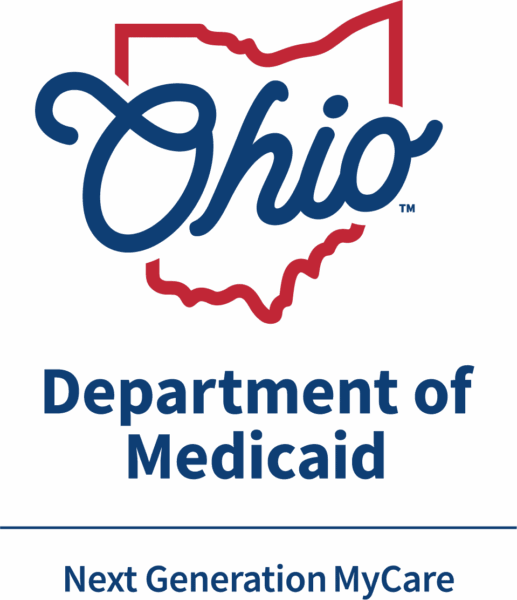What mental illness is considered a disability in NY?
Disability benefits are administered by the Social Security Administration (SSA). They have a very specific definition of disability, and they have evaluation processes in place to determine if you are eligible for SSI or SSDI benefits.
When it comes to mental illnesses, these are the ones that might fall under disabilities, according to SSA.
These disorders are listed in the SSA Blue Book, and each category has a code associated with it. We’ve included them in parenthesis next to each as well.
Neurocognitive disorders (12.02) – Disorders that involve clinically significant decline in cognitive function, such as dementia (Alzheimer), dementia due to medical conditions like multiple sclerosis (MS), HIV, and others.
Schizophrenia spectrum and other psychotic disorders (12.03) – Includes disorders that result in delusions, speech issues, hallucinations, erratic behavior, and other symptoms that cause a significant decline in functioning.
Intellectual disorder (12.05) – A mental disorder that causes one to have intellectual functioning considered significantly subaverage.
Anxiety and obsessive-compulsive disorders (12.06) – Includes generalized anxiety, obsessive-compulsive disorder (OCD), and other conditions that result in excessive anxiety, worry, fear, and avoidance.
Depressive, bipolar and related disorders (12.04) – Disorders like Major Depressive Disorder (MDD) or Bipolar Disorder that are characterized by irritability, depression, fluctuations between elevated or depressed mood, loss of interest in all activities, and more.
Somatic symptom and related disorders (12.07) – Somatic disorders are the ones where the cause of physical symptoms can’t be identified. Doctors often come to the conclusion that the preoccupation with an undiagnosed condition is the cause. One example is illness anxiety disorder.
Personality and impulse-control disorders (12.08) – Characterized by pervasive, inflexible, and maladaptive (intense daydreaming that distracts from regular functioning) behavior patterns. Paranoia is an example.
Autism spectrum disorder (12.10) – Mental illness that involves deficiencies in social behavior and communication (both verbal and non-verbal).
Neurodevelopmental disorders (12.11) – Distinct from neurocognitive disorders, neurodevelopmental disorders are when there is a deficiency in the developmental period, often childhood and adolescence. Examples could be specific learning disorders, or Tourette syndrome.
Eating disorders (12.13) – Disturbances in eating habits, preoccupation with shape and weight, excessive self-evaluation.
Trauma-related disorders (12.15) – Includes post-traumatic stress disorders (PTSD) and others that are induced by experiencing or witnessing trauma, or by learning about traumatic events happening to a close friend or family member.
Note – The categories mentioned above are broad mental disorder categories. Not all conditions under each category may qualify as a disability according to SSA. For detailed information about which specific conditions qualify, be sure to check out the mental disorder section of the SSA Blue Book.
How is mental illness as a disability evaluated by the SSA?
As we mentioned before, the SSA has specific evaluation criteria when it comes to deciding if you would qualify for disability benefits due to a mental illness.
Let’s look at the criteria they use for some of the most common mental illnesses in NY.
Does depression count as a disability?
According to section 12.04 of the SSA Blue Book, depressive disorders may qualify as a disability.
You will have to meet the following requirements to qualify for disability with depression.
1. Medical documentation with FIVE or more symptoms of depressive disorder.
OR
2. Medical documentation with THREE or more symptoms of bipolar disorder.
Additionally, you must provide one of the following.
1. Evidence of extreme limitation of one, or marked limitation of two areas of mental functioning.
OR
2. Evidence that your mental disorder in this listing category is “serious and persistent”.
For details on symptoms, areas of limitation in mental functioning, and definition of “serious and persistent”, visit section 12.04 of the SSA Blue Book.
Anxiety and obsessive-compulsive disorder (OCD) as disability
According to section 12.06 of the SSA Blue Book, anxiety disorders and obsessive-compulsive disorder (OCD) may qualify as disabilities.
You will have to meet the following requirements to qualify for disability with anxiety or OCD.
1. Medical documentation with THREE or more symptoms of anxiety disorder.
OR
2. Medical documentation with evidence of panic disorder or agoraphobia, or both.
OR
3. Medical documentation with evidence of obsessive-compulsive disorder (OCD).
Additionally, you must provide one of the following.
1. Evidence of extreme limitation of one, or marked limitation of two areas of mental functioning.
OR
2. Evidence that your mental disorder in this listing category is “serious and persistent”.
For details on medical documentation, areas of limitation in mental functioning, and definition of “serious and persistent”, visit section 12.06 of the SSA Blue Book.
Schizophrenia spectrum disorder as a disability
According to section 12.03 of the SSA Blue Book, schizophrenia spectrum disorder may qualify as a disability.
You will have to meet the following requirements to qualify for disability with schizophrenia.
Medical documentation showing evidence of ONE or more of the following.
- Grossly disorganized behavior (catatonia)
- You’re experiencing hallucinations
- You’re thinking and/or speech is disorganized
Additionally, you also have to provide evidence of the following.
1. Evidence of extreme limitation of one, or marked limitation of two areas of mental functioning.
OR
2. Evidence that your mental disorder in this listing category is “serious and persistent”.
For details on medical documentation, areas of limitation in mental functioning, and definition of “serious and persistent”, visit section 12.03 of the SSA Blue Book.
Personality and impulse-control disorders as disability
According to section 12.08 of the SSA Blue Book, personality and impulse-control disorders may qualify as disabilities.
You will have to meet the following requirements to qualify for disability with personality disorders.
1. Medical documentation with ONE or more pervasive patterns of behavior.
AND
2. Evidence of extreme limitation of one, or marked limitation of two areas of mental functioning.
For details on medical documentations on pervasive patterns, and what counts as mental limitations, visit section 12.08 of the SSA Blue Book.
Who decides if your mental illness counts as a disability?
The Social Security Administration (SSA), which is a federal agency, will be responsible for deciding if your mental illness counts as a disability.
They will require various different types of evidence to help them in the decision process.
We’ll look at the different evidence requirements below. But as always, for more in-depth information about each different evidence category, you should refer to section 12.00 of the SSA Blue Book.
What evidence will you have to show to qualify?
Qualifying for disability through mental illness isn’t just about documentation.
The SSA will try to collect information from various aspects of your life to determine if your mental disorder qualifies as a disability.
1. General evidence
Mental disorders are unique to each individual in various different ways. The severity, how it affects your ability to function, and more, can be significantly different than someone else with a similar condition.
Regardless of how your symptoms manifest, they can still cause decline in your ability to function.
The SSA has to take the variability of mental illnesses into consideration when reaching a decision.
They will ask for specific evidence when you apply, based on your individual circumstance, both from medical and non-medical sources, as we will see below.
As you will see, in various instances the SSA will need to speak with people in your life. Whether it’s your friends, neighbors, teachers, employers, social worker, or anyone else that interacts with you regularly.
They will ask for your permission to reach out to these people and ask about how your disorder affects your ability to function.
2. Medical evidence
You may be asked for any relevant medical evidence as it pertains to your mental illness. Here are some qualified sources.
- Psychologist
- Your physician
- Physicians assistant
- Psychiatric nurse practitioner
- Clinical mental health counselors
- Clinical social workers
You could be asked for the following, among others.
- Symptoms
- Medical history
- Psychological and/or psychiatric history
- Types of medications you take, including dosage
- Any therapy you receive
3. Evidence from people you know
This list could include the following.
- Family
- Long-term care provider
- Neighbors
- Your friends
- Social workers
- Shelter staff
- Community support workers
4. Evidence from work/school
If you’re still attending or recently completed school, then the SSA could obtain relevant information from school sources about the following.
- How your mental illness affected your ability to learn
- If you received special education services
- Information from your teachers about how you function in a classroom
If you’re receiving vocational training, or if you’re involved in work-related activities, then the following information might be relevant.
- Training or work evaluations
- Any modifications to your work schedule to accommodate for your mental illness
- If you’ve working through a community mental health program
5. Longitudinal evidence
Longitudinal evidence means information about any variations about how your condition has affected you over time. How your ability to function has gone up/down, or fluctuated, over time.
These are some of the people who may have longitudinal information about your condition.
- Family members
- Social workers
- Your medical providers
- Former employers
- Other government agencies
In the absence of longitudinal, the SSA has other means to get the information they need. Your case worker will help you through the process.
6. Functioning in unfamiliar and supportive situations
Finally, the SSA will evaluate your ability to function in unfamiliar and supportive situations to make a decision about your disability.
Unfamiliar situations are random situations that you are not used to. They want to evaluate your ability to function in such situations that you are not used to.
Supportive situations are the opposite. It’s a situation that you’re familiar with, and it’s repetitive in nature.
The final assessment by the SSA
The final decision by the SSA is not based on any one factor, but the overall assessment based on all the above criteria mentioned above.
They will try to determine if your mental illness is significant enough to the point you can’t function and earn a full-time living, and if you qualify for disability benefits.
What benefits are available for NY residents with mental illness?
Once you go through the disability application process in NY and qualify, you may be eligible for SSI or SSDI (or both) benefits.
Social Security Disability Insurance (SSDI)
SSDI pays benefits to you, and some members of your family, if you have a disability (and meet other requirements), only if you’re “insured”. That means you’ve worked long enough and paid enough into Social Security taxes.
The amount will depend on how long you worked, and how much you paid into social security taxes.
For more details, including eligibility requirements, and how work credits work towards your insurance, visit SSA’s page on how to qualify.
Supplemental Security Income (SSI)
SSI is based on your current income and financial needs (and disability), and the amount can vary depending on your situation.
On average, SSI benefit payments in New York are around $800 per month.
If you want to check if you qualify for SSI, the best place to get started is this benefit eligibility screening tool for SSI.
Frequently Asked Questions
Here are the answers to a few of the most frequently asked questions about disability and mental illnesses in NY.
Can a doctor put you on disability?
Your doctor’s diagnosis, and your medical history in general, is an integral part of the evaluation process. The medical evidence from your providers will be one of the most important aspects of your application.
But ultimately, it’s the Social Security Administration (SSA) who decides if you qualify for disability benefits.
How long does it take to get approved for mental disability in NY?
Usually, it takes around three to five months, assuming they can get all the necessary information from you in a timely manner.
If you qualify for SSDI, your benefits will be paid from six months from the onset of your disability, but only up to 12 months before the date of your application.
Does disability check your bank account?
SSDI is based on your past work and the taxes you’ve paid into your “insurance”. So, they do not check your bank account.
But SSI is based on your income and financial resources. So, if you apply for SSI, you will have to provide your bank account information.
Get started with the application
Apply for SSDI
Apply online for disability in NY
Apply by phone: 1-800-772-1213 from 7 AM. to 7 PM M-F.
In-person: Apply at your local social security office.
Social Security Income (SSI)
Visit a local social security office to apply (no online application)
Call 1-800-722-1213 (TYY 1-800-325-0778) first to make an appointment.








